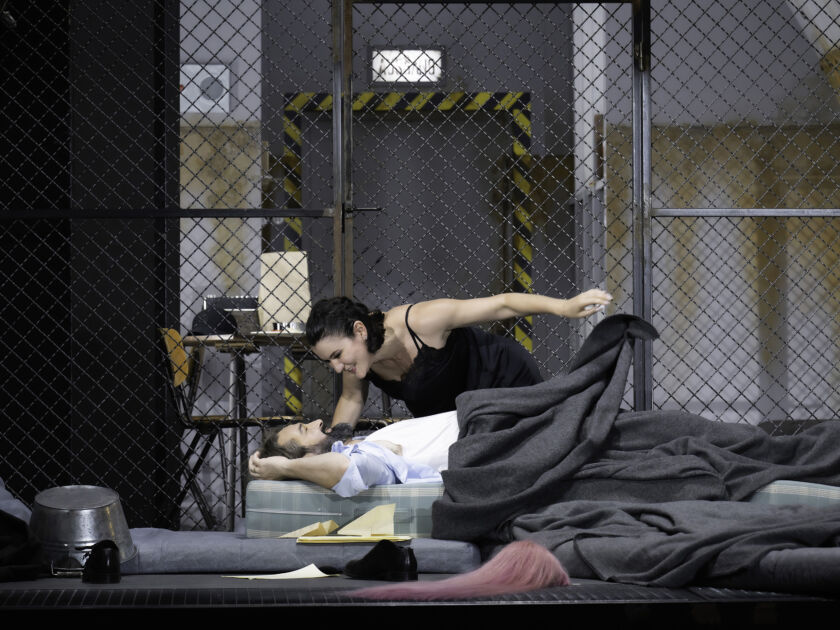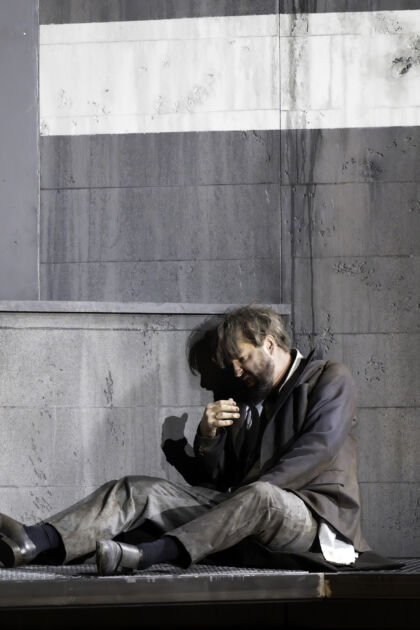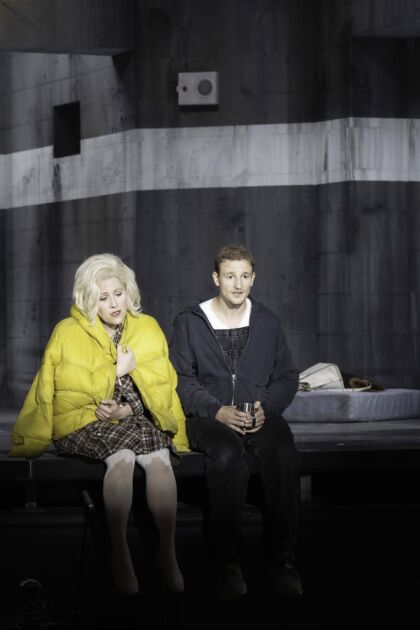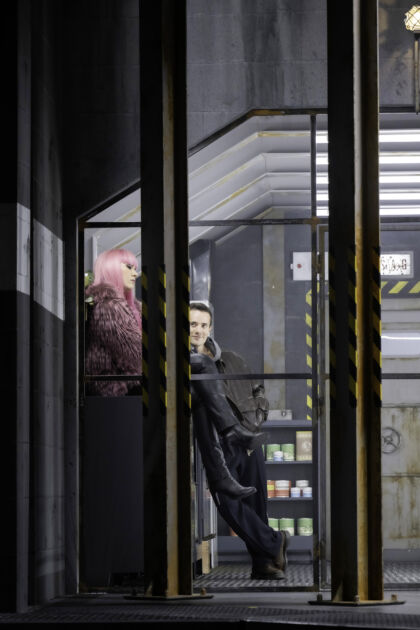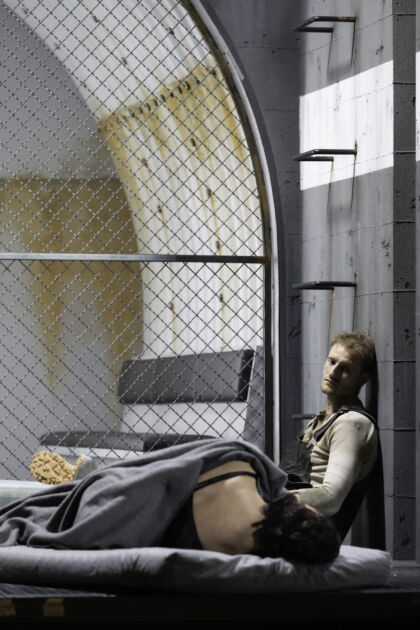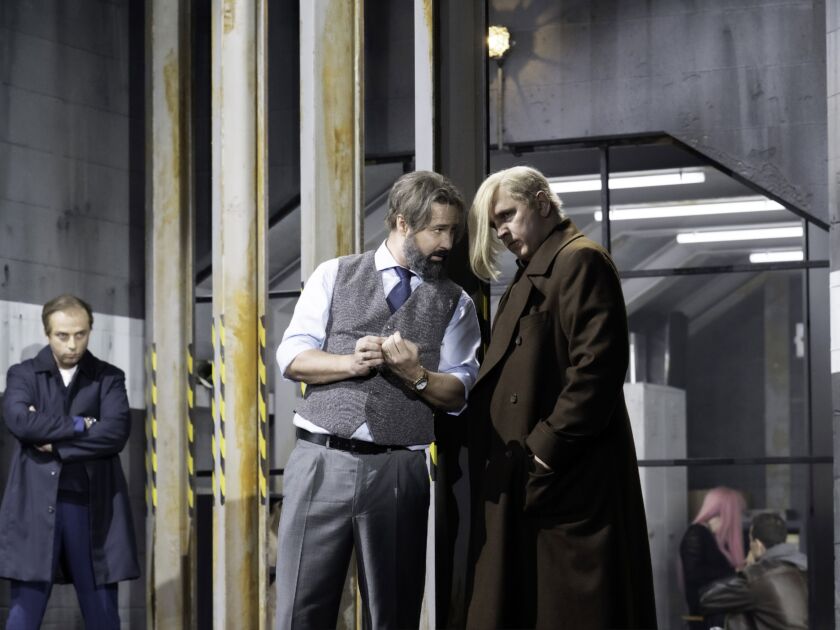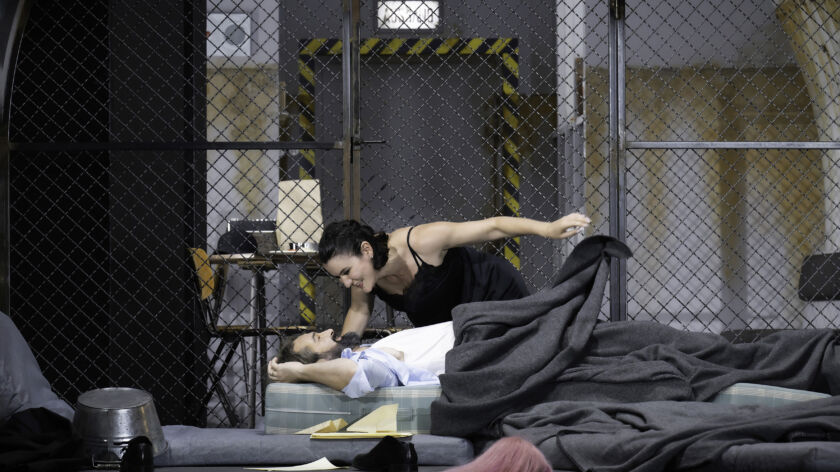‘Pitiful life!… A breath forms you, and a breath destroys you.’
The ‘savage spectacle’ at the very beginning of George Frideric Handel’s opera Giulio Cesare in Egitto (1724) deserves a trigger warning by the standards of present-day sensibilities: almost immediately after the welcoming chorus praising Caesar as the new Hercules and the solemn declarations of commitment to peace, a severed human head appears — that of Caesar’s political opponent, the Roman consul and Senate favourite Gnaeus Pompeius Magnus.
Pompey’s silent head makes others speak. First of all, Caesar himself. But what exactly has aroused Caesar’s outrage? The political assassination itself or the brutal way in which it was carried out? Or was it the fact that someone other than Caesar took it upon himself to decide Pompey’s fate; that death wrenched his rival from his power camouflaged as mercy, as later with Cato? Or does the physicality of a severed head cancel out the lofty vision of victory? Though Shakespeare’s Brutus conceived of tyrannicide as a work of art (‘a dish fit for the gods, not […] a carcass fit for hounds’), the playwright’s inexorable tragedy shows how delusional and futile are the efforts to aestheticize the murder, and displays the bloody rags of the toga to the audience.
The ‘savage spectacle’ of Pompey’s head brutally impacts our perception, creating — to use Judith Butler’s concept — a ‘frame’. As we gaze, we ponder the frightening urgency of political assassination. What life is grievable? Can murder be rationalized? This spectacle conditions our perspective, not only on the love story of Caesar and Cleopatra, but also on the story of the rivalry that destroyed Rome — that is, the whole world as it was then known. In his epic Pharsalia, Lucan identified its cause: Caesar could not recognize anyone’s superiority; Pompey could not tolerate an equal. Neither of the two great men who constituted the glory of Rome could yield: a hazardous zero-sum game that (as René Girard has shown) derives from mimetic rivalry and whose aim is only to win, without accepting compromises. This is the basis of Roman society with its cursus honorum, as well as of the Elizabethan homosocial society or that of Hanoverian Britain. It is not without reason that English culture was so eager to find in itself a reflection of ancient Rome, and that it so easily identified with this era, defining its own present, its heroes and villains, through Roman history and its actors.
Irreconcilable rivalries characterize the unique dramaturgy of Giulio Cesare — a continuous conflict in which everyone is subjected to existential threats in the most unexpected situations. There are no safety zones. Cleopatra also enters the male competition for power, using gender as a weapon that gives her an advantage in a fight without rules. No wonder that Caesar’s aria ‘Va tacito e nascosto’, which sets out the modus operandi of a merciless predator, originally belonged to Cleopatra in Handel’s manuscript — the two are equals in this contest and employ the same techniques.
The very structure of the Royal Academy of Music, a theatrical enterprise for which Giulio Cesare was Handel’s fifth opera, and one of his most successful, contradicted any narrow political engagement: among the co-founders, directors and subscribers of this joint-stock corporation were pro-government as well as dissident Whigs and Tories. Handel and his librettist Haym addressed their audience beyond factional differences, revealing the depth of humanity in their operatic characters, each of whom transcends the limits of their role as set by tradition, and thus attempted to overcome the very spirit of enmity that, more than any political differences, threatens to destroy our world today just as it once destroyed Rome.
For director Dmitri Tcherniakov and conductor Emmanuelle Haïm, this is their first experience of working together at the Salzburg Festival; however, they have already collaborated in a unique project combining Gluck’s Iphigénie en Aulide and Iphigénie en Tauride in Aix-en-Provence (2024). Passion and uncompromising creativity make this collaboration exciting for the performers, creative team and audience alike.
Analena Weres
Production Images
